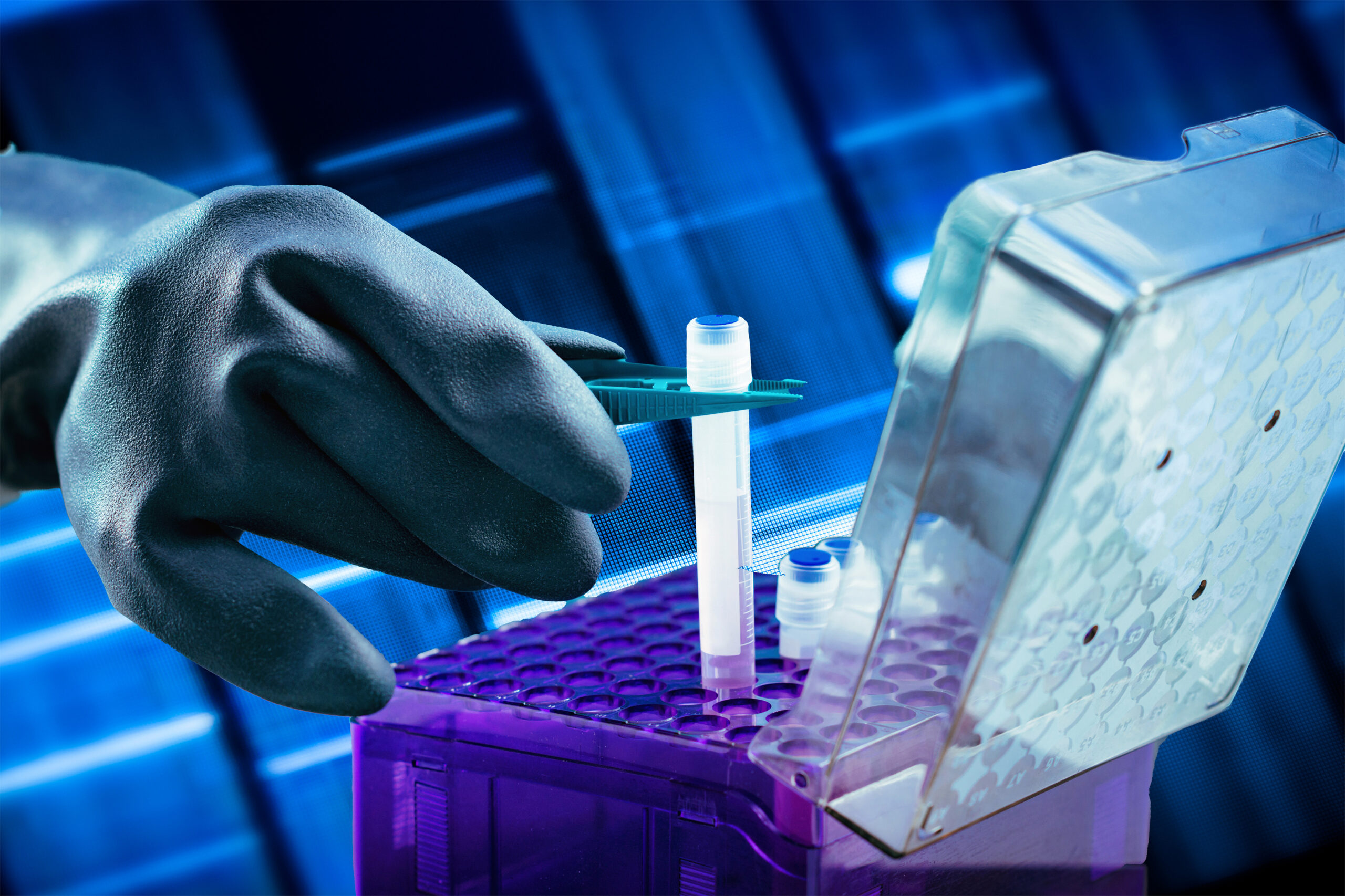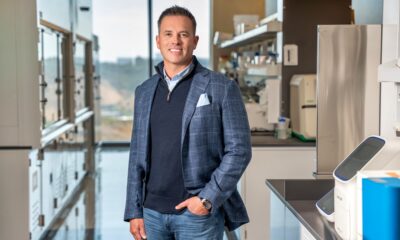Health
MIT Spinout Cache DNA Revolutionizes Biomolecule Storage

A new MIT spinout, Cache DNA, is transforming the way biomolecules are stored by developing technologies that eliminate the reliance on refrigeration. Founded by James Banal and Mark Bathe, Cache DNA aims to preserve DNA and other biomolecules at room temperature, addressing significant challenges in the life sciences industry. The innovations from this company have the potential to enhance accessibility to biological samples and improve health outcomes worldwide.
Historically, the life sciences sector has depended heavily on freezers for the storage and transport of biological materials, including patient samples and vaccine candidates. The vulnerabilities of this system became apparent during the Covid-19 pandemic when many vaccines were discarded due to thawing during transport. As the demand for precision medicine increases, the need for stable storage solutions has never been more critical. A single power outage or shipping delay can compromise valuable samples, delaying treatments and research.
Cache DNA seeks to liberate the biotechnology sector from its decades-long dependence on cold chain logistics. With the cost of DNA sequencing plummeting from $3 billion for the first human genome to under $200 today, the process of storage and transport has become a significant bottleneck in advancing medical research. Banal emphasizes, “Biotech has been reliant on the cold chain for more than 50 years. Why hasn’t that changed?”
Innovative Solutions for Storage Challenges
The founders of Cache DNA, which emerged from research at MIT, have developed a groundbreaking method to store and preserve DNA molecules without refrigeration. Their approach allows for the storage of clinical nucleic acid samples and has wide-ranging applications across healthcare, from routine blood tests to cancer screening and pandemic preparedness. Banal notes, “Imagine if every human on Earth could contribute to a global biobank, not just those living near million-dollar freezer facilities.”
Banal, an Australian postdoc at MIT, worked under the mentorship of Bathe, a professor in the Department of Biological Engineering. Their collaboration led to the creation of a system that stores DNA data in tiny glass particles, which they commercialized when they founded Cache DNA in 2021. Initially, the technology was not ready for most commercial applications, but the potential was clear.
The partnership with Professor of Chemistry Jeremiah Johnson brought another layer of innovation. Johnson’s research into recyclable plastics led to a new polymer that could encapsulate DNA at room temperature, inspired by the way “Jurassic Park” depicts the recovery of ancient DNA from amber. Banal recalls, “It started basically as a fun conversation along the halls of Building 16.”
This collaboration resulted in a polymer that forms a protective barrier around DNA, enabling it to be stored without degradation. The researchers demonstrated the polymer’s effectiveness by successfully encoding DNA sequences with the theme song from “Jurassic Park.”
Addressing Global Health Needs
Cache DNA’s development of its first alpha DNA preservation kits has garnered interest from researchers worldwide. Over 100 kits were distributed, and the feedback has revealed a variety of applications, from field sample collection in remote areas to long-term archival storage. Researchers face common challenges, such as humidity and limited laboratory space, making reliable storage solutions essential.
Banal noted, “Hospitals told us they were running out of space. They had to throw samples out and limit sample collection.” This feedback has driven Cache DNA to refine its technology further, and the company recently received a grant from the National Science Foundation to expand its capabilities to include RNA and proteins, aiming to unlock new insights into health and disease.
Bathe asserts that eliminating the cold chain could unlock millions of genetic samples globally, empowering personalized medicine. He envisions a future where the equivalent of a “Google Books” for nucleic acids could enable vast collections of clinical samples to be stored at room temperature, facilitating health research in diverse settings, including remote regions with unreliable electricity.
Banal concludes, “Freezers have dictated where science could happen. Remove that constraint, and you start to crack open possibilities.” The implications of this technology could revolutionize global health research, enabling contributions from populations that have traditionally been excluded due to logistical challenges. Room-temperature storage may not be a panacea, but it represents a significant leap forward in the quest for equitable health solutions.
-

 Science2 weeks ago
Science2 weeks agoNostradamus’ 2026 Predictions: Star Death and Dark Events Loom
-

 Technology1 month ago
Technology1 month agoOpenAI to Implement Age Verification for ChatGPT by December 2025
-

 Technology6 months ago
Technology6 months agoDiscover the Top 10 Calorie Counting Apps of 2025
-

 Health4 months ago
Health4 months agoBella Hadid Shares Health Update After Treatment for Lyme Disease
-

 Health4 months ago
Health4 months agoAnalysts Project Stronger Growth for Apple’s iPhone 17 Lineup
-

 Health4 months ago
Health4 months agoErin Bates Shares Recovery Update Following Sepsis Complications
-

 Technology4 months ago
Technology4 months agoElectric Moto Influencer Surronster Arrested in Tijuana
-

 Technology5 months ago
Technology5 months agoDiscover How to Reverse Image Search Using ChatGPT Effortlessly
-

 Technology6 months ago
Technology6 months agoMeta Initiates $60B AI Data Center Expansion, Starting in Ohio
-

 Technology6 months ago
Technology6 months agoRecovering a Suspended TikTok Account: A Step-by-Step Guide
-

 Education4 months ago
Education4 months agoHarvard Secures Court Victory Over Federal Funding Cuts
-

 Technology2 months ago
Technology2 months agoDiscover 2025’s Top GPUs for Exceptional 4K Gaming Performance





















